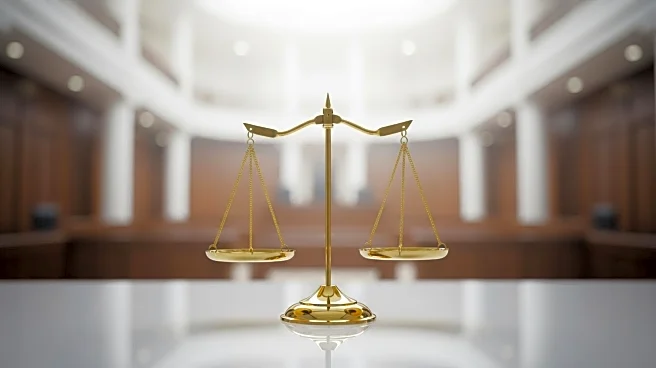What is the story about?
What's Happening?
US District Judge William Alsup has expressed strong criticism of a proposed $1.5 billion settlement in a case involving Anthropic's alleged piracy of books to train artificial intelligence models. The settlement, which covers less than 500,000 works, is seen as insufficient by critics, given that Anthropic could have faced over $1 trillion in damages. The class-action lawsuit includes up to 7 million claimants whose works were reportedly downloaded illegally by Anthropic. Despite the settlement, Anthropic has not admitted any wrongdoing and continues to raise significant funds, recently securing $13 billion in a funding round. Judge Alsup has denied preliminary approval of the settlement, citing unresolved issues such as the Works List, Class List, Claim Form, and processes for notification, allocation, and dispute resolution.
Why It's Important?
The case highlights significant concerns about the protection of intellectual property rights in the age of artificial intelligence. The settlement's perceived inadequacy raises questions about the accountability of tech companies that use copyrighted materials without permission. Authors and other rights holders may feel marginalized if settlements do not adequately compensate for the unauthorized use of their works. The outcome of this case could set a precedent for future copyright disputes involving AI and large tech companies, potentially influencing how intellectual property laws are enforced in the digital age.
What's Next?
Judge Alsup has called for a recalibration of the settlement, requiring more comprehensive instructions for copyright owners to opt in and resolving disputes in state court. Until these issues are addressed, the judge intends to withhold approval of the settlement. This decision may lead to further negotiations between Anthropic and the authors' legal representatives, potentially resulting in a revised settlement that better addresses the concerns raised by the court.
Beyond the Headlines
The case underscores the ethical and legal challenges posed by AI technologies that rely on vast amounts of data, including copyrighted works. It raises questions about the balance between innovation and the protection of intellectual property rights, as well as the responsibilities of tech companies in ensuring fair compensation for creators.
















